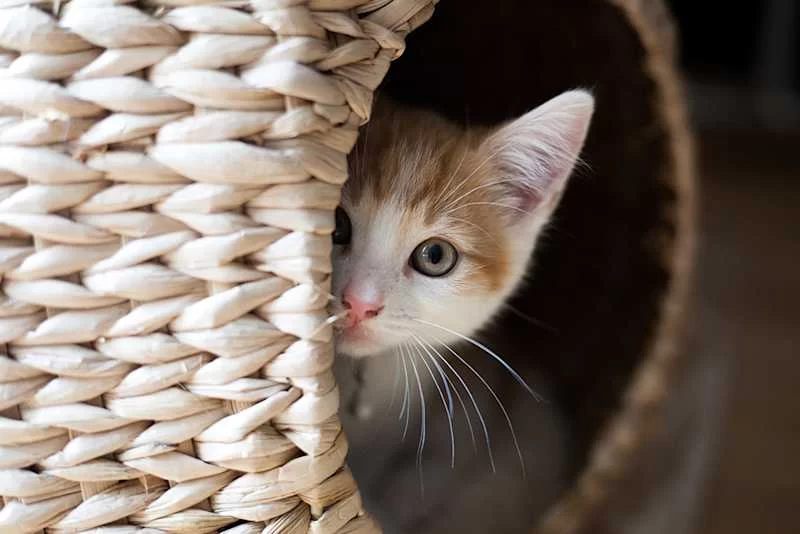Understanding Cat Anxiety: Why Your Cat Is Feeling Stressed
As a cat owner, one of the most challenging things to witness is your cat experiencing anxiety. Whether it's caused by a move to a new home, changes in their routine, or even something as simple as a noisy environment, anxiety can greatly affect your cat's behavior and well-being. In this article, I’ll share my personal experiences and the solutions that have worked wonders for my own anxious cat. By the end, you’ll have a better understanding of how to manage and reduce anxiety in your feline friend.
Recognizing the Signs of Cat Anxiety
Before jumping into solutions, it’s crucial to recognize the signs of anxiety in cats. Unlike humans, cats don’t verbally express their stress. Instead, they show it through various behavioral changes. Some of the most common signs of anxious cats include:
- Excessive grooming or shedding
- Hiding or withdrawing from people and other pets
- Change in appetite, either eating too little or too much
- Aggression or irritability
- Increased vocalization (like meowing or yowling)
- Urinating or defecating outside the litter box
If you notice any of these behaviors in your cat, it might be a sign that they are feeling anxious and need some help managing it. I experienced this firsthand when I moved to a new apartment and my cat, Felix, started hiding under the couch and refused to eat. Recognizing these signs early can help you address the issue before it escalates.
Creating a Calming Environment for Your Cat
One of the first things I did to help Felix was to create a calm and predictable environment. Cats are creatures of habit, and any sudden changes can lead to anxiety. Here are some strategies that helped Felix, and can help you too:
1. Establish a Safe Space
Cats often feel most secure in small, enclosed spaces. I set up a quiet, cozy area for Felix with his favorite blanket, toys, and access to food and water. This became his sanctuary, where he could retreat whenever he felt overwhelmed. If your cat doesn’t have a designated safe space, I highly recommend creating one. It could be as simple as a cozy corner or a cat tree where they can climb and feel safe.
2. Maintain a Consistent Routine
Just like us, cats thrive on routine. Changing feeding times, play sessions, or litter box maintenance can contribute to your cat's anxiety. Keeping Felix’s routine consistent helped him feel more secure. Feeding him at the same time each day and keeping playtime regular provided a sense of normalcy in an otherwise chaotic environment.
3. Minimize Noise and Stressors
If there are loud noises in your home—such as construction, parties, or even the vacuum cleaner—your cat might get stressed. Try to limit loud sounds or provide a quiet room for your cat to retreat to during noisy times. Felix, for example, was terrified of the vacuum, so I made sure to vacuum when he was out of the house, and it made a huge difference in his stress levels.
Utilizing Products to Help Calm Your Cat
Sometimes, despite our best efforts, cats may still need a little extra help to calm down. There are several products available that can aid in reducing cat anxiety. I’ve tried several of them, and here are the ones that worked for Felix:
1. Calming Pheromone Diffusers
One of the most effective products I used was a calming pheromone diffuser. These diffusers release synthetic versions of the calming pheromones that cats naturally produce. When Felix started showing signs of anxiety, I plugged in a pheromone diffuser in his safe space. Within a couple of days, I noticed a significant reduction in his stress levels. Pheromone diffusers are a great way to help your cat feel more secure without resorting to medications.
2. Herbal Supplements and Treats
There are various herbal supplements designed to soothe anxious cats. I tried a few that contained ingredients like valerian root and chamomile. While the results weren’t immediate, I did notice that Felix seemed more relaxed after taking these supplements consistently. You can find treats and supplements at your local pet store or through online retailers.
3. Anti-Anxiety Jackets
Anti-anxiety jackets, also known as "thundershirts," are another great option to help calm your cat. These jackets apply gentle pressure to the cat's body, similar to how swaddling works for babies. I was skeptical at first, but when I put the jacket on Felix, he instantly became more relaxed. These jackets can be particularly useful during stressful events like trips to the vet or during thunderstorms.
Behavioral Training and Interaction
Aside from environmental changes and calming products, I also found that engaging in positive reinforcement and interactive play helped to manage Felix’s anxiety. It’s essential to provide your cat with mental and physical stimulation, especially if they are home alone for extended periods. Here’s what worked for us:
1. Interactive Playtime
Felix loved playing with feather wands and laser pointers. I made it a point to engage in playtime with him every day. Not only did this help to distract him from anxious thoughts, but it also allowed him to exercise and burn off excess energy. Playtime is a fantastic way to bond with your cat while providing them with mental stimulation, which can help alleviate anxiety.
2. Positive Reinforcement
Another technique I found effective was positive reinforcement. Whenever Felix would show signs of calm behavior, I rewarded him with treats or affection. This helped him understand that being calm was a positive experience. Over time, I noticed that Felix was more relaxed during situations that once triggered his anxiety.
3. Desensitization to Triggers
If your cat’s anxiety is triggered by specific situations, such as trips to the vet or strangers entering your home, consider desensitizing them slowly. I practiced this with Felix by gradually exposing him to situations that caused anxiety in a controlled manner. For example, I would take him on short car rides to get him used to the sensation of traveling without immediately heading to the vet. Over time, his fear of car rides decreased significantly.
Seeking Professional Help for Severe Anxiety
Despite all your best efforts, some cats may have anxiety that’s too severe to manage on your own. In these cases, it’s important to seek professional help. I consulted with a veterinarian when Felix’s anxiety became overwhelming, and they were able to provide additional solutions, including prescription medications. While medications should always be a last resort, they can be very helpful in extreme cases where behavioral changes aren’t enough.
If your cat's anxiety is interfering with their ability to enjoy life, don't hesitate to reach out to a professional. Hidden Brook Veterinary is an excellent resource for expert advice and personalized care to help manage your cat's anxiety.












